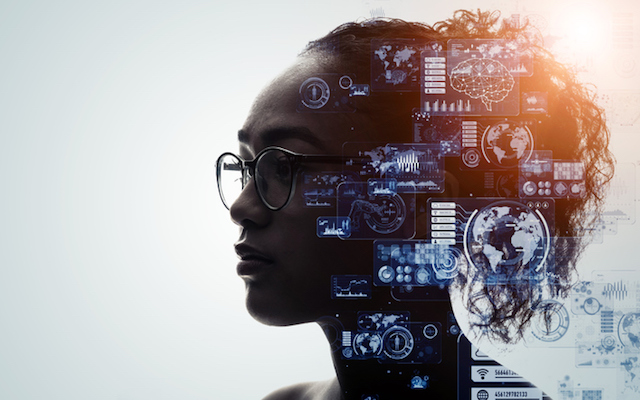When someone mentions artificial intelligence (AI), it may conjure thoughts of your favorite sci-fi movie. But these days, AI is more science than fiction. This is particularly true when it comes to hearing aids. Gone are the days of one-size-fits-all hearing aids that simply increase the volume of sounds around you. Modern-day, high-end hearing aids utilize AI.
What is artificial intelligence?
AI is a form of technology that learns from experiences and applies what it has learned to complex situations the same way your brain does. Your hearing aid adjusts to your personal needs based on your lifestyle and degree of hearing loss. This makes your hearing aid more effective at improving your hearing.
For those who aren’t familiar, AI refers to machines that perform functions that usually require human intelligence. Utilizing machine learning, these devices use algorithms to make decisions about sound regulation. These smart devices use a deep neural network to imitate human brain responses. Because of this, these hearing aids react in real-time to situations without being programmed to deal with them.
This may sound like space-age science, but it’s the same technology that allows streaming services to suggest programming based on your viewing history. AI is also found in cars and the emails auto-sorted into your inbox. These devices become more adept at making correct decisions the more you use them.
The benefits of hearing aids with AI
AI in hearing aids may come as a surprise, but hearing aid companies have been slowly incorporating this technology for years. As technology advances, changes to hearing aids are becoming more apparent. In the past, a hearing aid simply increased the volume of sounds around you. These days, they take it a step further.
Imagine you are having a conversation at a party. An older hearing aid would make everything louder. This isn’t helpful because the conversation will get drowned out by background noise. With AI, the hearing aid can listen to the noise around you and react the way your brain would, dulling background noise and focusing on your friends’ voices.
AI learns to recognize sounds and creates a location-by-location program. These programs help when you return to a specific location or sound profile. Other hearing aids with AI are programmed with everyday sounds in order to better identify and amplify important sounds.
Let’s go back to that crowded party with a hearing aid that will take in and analyze all the sounds around it. Using AI, your hearing aid will categorize each sound and balance it for you based on your personal level of hearing loss.
Cost vs. reward
Despite the benefits, AI isn’t in all hearing aids due to the cost. Perhaps someday, AI will be standard in all hearing aids. For now, however, manufacturers are only integrating it into their higher-end models. Some use machine learning, which allows the AI to create new programs based on the wearer’s lifestyle.
For someone who lives alone and doesn’t go out much, hearing aids with AI may not be worth the extra cost. To someone who is socially active and finds herself in situations with many competing sounds, however, it makes a huge difference.
Hearing aids with AI are also useful for someone who is quickly worn out in social situations where the chore of keeping up with conversations using a traditional hearing aid is exhausting. AI-powered hearing aids reduce the listener’s fatigue and make social situations more enjoyable. AI technology can also send alerts to your phone when the doorbell rings, alert others you have fallen and track your steps. As technology and AI improve, hearing aids will continue to improve, as well.
